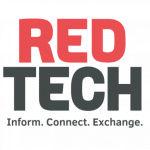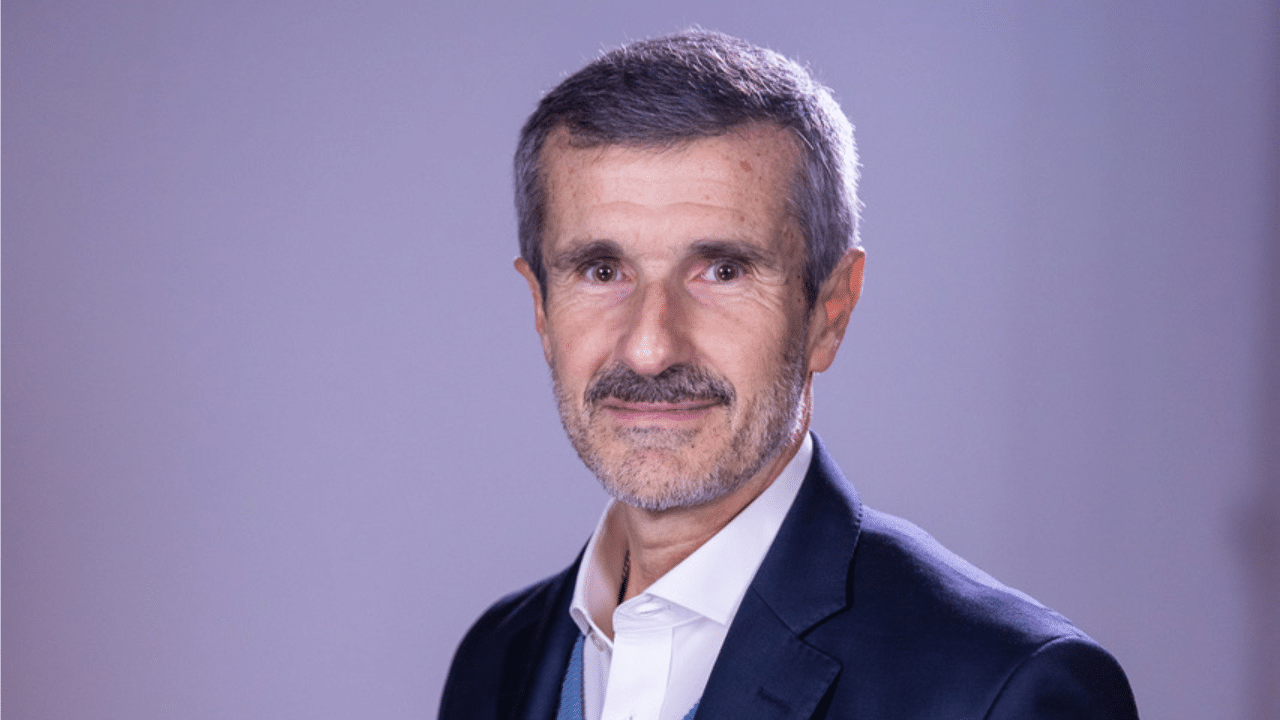Grupo Renascença Multimédia is one of Portugal’s biggest media brands. As head of its radio division, Rádio Renascença, José Luís Ramos Pinheiro must think of far more than radio. As such, he faces many challenges familiar to other radio broadcast executives worldwide. However, Portugal also boasts regulatory quirks that demand patience and quick thinking. For Pinheiro, leading is about listening, especially to the litmus test for radio’s future: The country’s youth.
RedTech: Tell us about yourself, your background and your journey in radio broadcasting.
José Luís Ramos Pinheiro: My university background is law, but my passion is communication. Journalism was a dream come true that quickly became much more than that. I began my career as a journalist in the Radio Renascença Group; five years later, I was the newsroom chief. I then started a new weekly newspaper — “O Independente” — and three years later became deputy director of another newspaper — Semanário.
In 1994, I returned to Rádio Renascença as news director, and in 2003, joined the Grupo Renascença Multimédia board overseeing technology and marketing and the three radio stations — Renascença, RFM and Mega Hits.
Since 2002, I have overseen two radio broadcast courses at Catholic University in Lisbon and been a commentator for different media outlets, including television.
RedTech: How is the radio environment in Portugal different today from when you started in radio, and how do you expect it to change in the next five years?
Pinheiro: Life, the world and people are different. The media landscape is totally different. The first big change was the integration of automated digital processes, which completely transformed radio production and broadcast. Then came online audio, social media and podcasts, which expanded the world of radio completely.
All these changes pressured radio to integrate its knowledge, technology and talent to create an offering that could compete with all other media in real time. The pressures to keep on doing so will lead us toward new products tailored to consumer demands, powered by whatever technology and talent is at hand. The only limit is imagination. The ground rule is to keep on building powerful connections.
Looking ahead, I see a more interconnected, hybridized digital radio world focused on personalized and interactive programming to match changing listener tastes.
However, while technology is essential, human talent will remain foundational.
Younger listeners are critical for Renascença’s long-term viability, so we create content tailored to their interests. Developing a radio habit among younger listeners demands not just on-air methods but a strong online and social media presence.
José Luís Ramos Pinheiro
RedTech: What are the regulatory, operational or technical challenges typical of your operating environment?
Pinheiro: Keeping up with the ever-changing laws regulating traditional and internet broadcasting demands ongoing awareness and agility. There is a profound gap between Portuguese radio legislation and the real world, which is digital, flexible and consumer friendly.
Operational challenges include balancing traditional broadcasting needs while adding digital components to provide listeners with a smooth and integrated experience across all platforms. This requires ongoing expenditures in technical infrastructure — a complicated but critical operational problem to ensure compatibility and dependability between older systems and new technologies.
The utmost challenge is maintaining a business model that will challenge the myriad of platforms playing a very different game to local responsible content creators such as ourselves, who value reputation. We must champion our unique opportunities to reach an audience in a safe and engaging way, through powerful connections built on trust.
RedTech: Which one of those challenges keeps you up at night?
Pinheiro: They’re all connected: The audience demands the product that requires the talent and technology, which requires investments, that need the right business model. We must somehow stay ahead of the curve in terms of technology and audience trends.
RedTech: With increased competition from online audio options, how have you rethought your content and sales strategies?
Pinheiro: Renascença Group prioritizes developing distinctive, high-quality content to distinguish itself from digital rivals. Diversification is part of the sales strategy. To preserve financial resiliency, we explore targeted advertising, partnerships, music festivals and new digital revenue streams. Competition is an accelerator to strategy creation.
We have two different perspectives to consider: The narrowing of the path as multiple players enter our market and the expanding perspectives technology presents; we must combine both. Our advertisers and audience must see our knowledge of the market, experience and expertise in content creation, and all the add-ons we can include in a product bundle as unique.
RedTech: What is Rádio Renascença’s first-party data strategy, and how do you expect it to evolve over the next few years?
Pinheiro: We currently use first-party data to determine listener preferences and build advertising campaigns appropriately. We expect this strategy will develop in the near future with a greater emphasis on privacy-compliant procedures. As data rules change worldwide, we will continue to prioritize data protection and ethical usage while looking for new methods to use data for personalized content delivery.
RedTech: Are younger listeners important to Rádio Renascença? If so, how are you helping develop their radio habit?
Pinheiro: Younger listeners are critical for Renascença’s long-term viability, so we create content tailored to their interests. Developing a radio habit among younger listeners demands not just on-air methods but a strong online and social media presence.
Simultaneously, younger listeners teach us a lot about where media is heading. They demand new information, entertainment, music and talent models, all within a peer-to-peer recommendation environment.
They move fast and don’t look back, and we must move with them — be at their parties, help them find new music and introduce them to personalities, on all platforms, around the clock.
That’s what we do with Mega Hits. It is a talent nursery for all the other stations, our lab for procedures and systems and an innovation accelerator.
RedTech: How are you using new technologies to help grow or to cut costs?
Pinheiro: Renascença Group welcomes new technology for growth, such as using artificial intelligence for content selection, virtual spaces like the metaverse for more dynamic broadcasts and interactive elements to increase listener engagement.
We accomplish cost-cutting and efficiency via the judicious use of technology. Automation, for example, decreases manual workload and optimizes resources, giving talent the time to create, resulting in a more cost-effective and sustainable company model.
AI plays its part, and we are looking to other areas where it can help us generate innovative content or improve and check the accuracy and integrity of our content.
Renascença Group welcomes new technology for growth, such as using artificial intelligence for content selection, virtual spaces like the metaverse for more dynamic broadcasts and interactive elements to increase listener engagement. We accomplish cost-cutting and efficiency via the judicious use of technology.
José Luís Ramos Pinheiro
RedTech: How do you recruit new radio talent, and what skills do you look for compared to, say, ten years ago?
Pinheiro: University plays an important role. I am always looking for bright young people in my radio classes at Catholic University. In fact, many former students work with us. We also seek rising talent through traditional channels such as job listings and industry events, but also through internet platforms and collaborations with many educational institutions.
The skillset desired in today’s recruits has changed. While we still value conventional broadcasting abilities, there is a growing focus on digital literacy, social media competency and adaptation to fast-changing broadcast technology.
Personality, attitude, character, pro-activity, creativity and team-player skills are still crucial. We test them hands-on, then, as they deliver, set them bigger challenges while coaching and mentoring.
RedTech: How important is in-car listening to Rádio Renascença? As screens in cars get bigger, how is your programming and sales strategy changing?
Pinheiro: If the car is the realm of radio, the dashboard is the shrine. We must master the car to lead, but if we want to be close to our audience, we must use mobility and cross-device strategies.
As automobile displays become larger, we have adjusted our programming and sales techniques to keep up. Exploring innovative interactive features or targeted advertising approaches to maximize the impact of in-car listening is part of this.
But the car is only one connection. As the listener moves swiftly from the car to the train, to the bus, to the office, to the gym and back home, it’s a challenging battle for attention and relevance. In itself, that’s a journey, not a destination.
RedTech: How is the job of a radio CEO different today than when you started in the business?
Pinheiro: Radio leadership used to be centered on a person with the vision and ability to lead the execution on all aspects. Today, any leadership centered on a CEO’s ego is doomed to fail.
In a complex, fast-changing environment, we need a team aligned with a vision that can work organically, with clear roles and responsibilities, and can adapt operations on the fly to cope with multiple challenges without losing speed.
Leadership today entails navigating both conventional and digital worlds to remain competitive and inventive in a rapidly changing media business. Additionally, the CEO position includes greater strategic emphasis on audience interaction, content personalization and income diversification.
And never forget this: In an increasingly complex ecosystem and society, leading is about serving those who comprise it and are instrumental in its success.
More interviews from RedTech
Joe D’Angelo: Steering a radio renaissance
NumberEight: Reintroducing contextual advertising to digital audio

